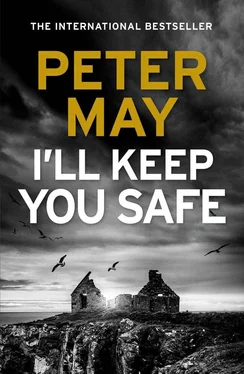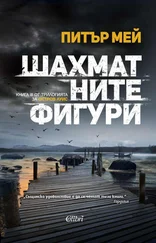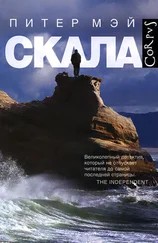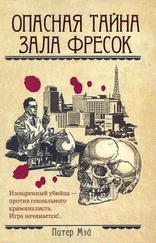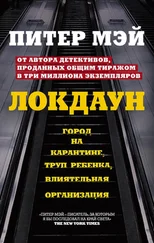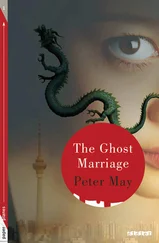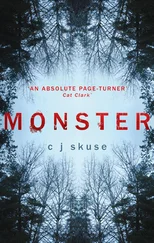Right on cue the brown cardboard box with its shipping straps slipped through the plastic flaps from the loading bay beyond, and Mrs Murray followed her daughter’s eyes. Her gasp was involuntary, and her hand flew to her mouth. Whatever she felt about Ruairidh, nothing had prepared her for the sight of that box. And Niamh remembered the first time that Ruairidh had come into her life.
I was just seven years old when I had my first encounter with death, and Ruairidh Macfarlane saved my life.
I was born three years before Margaret Thatcher became prime minister, and most of my growing up was done during the Eighties when she ruled our country with an iron fist in a velvet glove. I didn’t know much about politics then. I was too young. But I learned to associate the name of Thatcher with economic depression and unemployment, growing up as I did in a community where barely a single soul had voted for her and unemployment was rife.
The population of Balanish was, and is, only a few hundred. When I was still a child most of our neighbours were crofters. They kept sheep on land divided into narrow strips, and grew mostly potatoes and root vegetables. There were a few fishermen, but even then there was no serious fishing being done from the west coast. A few folk worked in the mill at Carloway, and others had jobs with the council, like my dad, and travelled to and from Stornoway on a daily basis. Others were unemployed, and only the money from the buroo and subsistence crofting kept them going until better times.
I had, when I look back on it now, the best childhood I could have hoped for. Idyllic in many ways. I had two older brothers, Anndra and Uilleam. Anndra was the middle child. And maybe because the first child gets all the attention, and the girl gets all the adoration, he developed a mischievous streak. He knew I hated spiders, and I would find them everywhere. In my school bag, in my pockets, even in my bed. It gave him endless amusement.
But he and Uilleam were also ultra-protective. The merest hint of a threat to me, no matter who from, and they would rally round to stand resolute in my defence. Family came first. Tormenting Niamh second.
Sometimes, to escape their mischief, I would hide in the peat stack. My father was meticulous in the building of our stack. Long and beautifully rounded, a perfect herringbone construction to maximise drainage. But once it was built, it was the boys who were sent out to bring in the peats for the fire. And when I became old enough the peat-fetching was delegated to me. At an early age, I learned how to hollow out one end of it, hiding the peats I removed in the old blackhouse, and making myself a wee den inside that I could conceal by stuffing peats in the hole to block it. It was my secret place, though it had always disappeared by the end of the winter.
We had perfect freedom in those days to wander wherever the mood took us. As long as we were home in time for meals. Looking back, it seems the world was a safer place then. I used to cycle three miles or more to the next village along the coast to play with Seonag. I went part of the way on the main road, and then over a rough dirt track that wound its way around the hills beyond the Doune Braes Hotel. And I went in all weathers.
It’s a funny thing. Most folk on the mainland are obsessed by the weather. Because they get a fair amount of the good stuff, they don’t take it well when it turns bad. On the island, the weather’s almost always bad, and changes so fast that you don’t really notice it. It just is.
I met Seonag on our first day at primary school and we sort of clicked. Her folks had a croft that ran right down to the shore, with a stunning view across East Loch Roag to Great Bernera. Her father owned a mobile shop, and he used to travel up and down all the villages on the west coast selling processed meats and root vegetables, fruit in season, and tinned goods and bread and sweeties for the kids. He also did some weaving, and we used to hear his old Hattersley clacking away in the shed at the top of the croft.
When Seonag came to our place we played in a small stone outbuilding, or bothag as we called it in Gaelic. Houses was the name of the game we indulged in there, furnishing it like a big doll’s house that we could crawl in and out of, dragging our dollies with us, teaching them how to sit up straight and eat nicely.
It was where my father kept his tools, and we had to drag them all out to make space for our domestic fantasy. He would get mad at us and tell us to go amuse ourselves elsewhere. Which is when we’d head off to play down by the shore. I couldn’t count the hours we spent down there trying to catch crabs in the pools left by the outgoing tide, or just sitting on the rocks with the stink of the kelp in our nostrils, watching the boats coming in and out of the harbour across the bay.
There was an old walled cemetery on the shore, by the foot of our croft, that hadn’t been used for a hundred years or more. But it always reduced us to silence when we would pass by it, knowing that the spirits of the dead were kept somewhere inside it, behind its moss-smothered walls. I remember Seonag saying to me once in a hushed voice, ‘Will they bury us in there when it’s our turn to die?’ I particularly remember that phrase — our turn to die . Somehow I’d never thought of it like that before, and maybe it was the first time I had ever fully understood that one day I, too, would die.
‘Don’t be silly,’ I told her, a little shocked and trying to recover myself. ‘They don’t bury folk in there any more.’ I remembered my grampa telling me that it was an accidental cemetery. In the old days they took the bodies by boat across the water to a burial ground on Little Bernera. But when the weather was too bad, they buried them right there, a stone’s throw from the slipway.
‘Where will we be buried, then?’
‘Dalmore,’ I said.
‘On the beach?’ Seonag was amazed.
‘Don’t be daft! There’s a cemetery on the machair above the beach. That’s where everyone goes now.’ Years later I always thought of Dalmore as being the valley of death. It was a place that took on a significance in my life that I could never have guessed at then.
Sundays were my least favourite day of the week. None of us was allowed out to play. I had friends whose parents made them sit in and read the bible all day, and although my folks were never that religious, we still got dragged off to midday service at the Free Church of Scotland. It sat right next door to the Church of Scotland. I never knew the difference then, and still don’t today. Except that they present a shining example of how folk can never agree on anything. Even God.
You might think that with two churches Balanish was a big place. It wasn’t. You could walk from one end of it to the other in a few minutes. Although folk who lived a mile or two out along the road in either direction would tell you that they were balaniseachs too. There was a primary school with two teachers, and when you completed your seventh year you went to Shawbost for the first two years of secondary. Then on to Stornoway. Either the Nicolson or Lews Castle. Right next door stood a community hall that was opened by Donnie ‘Dotaman’ Macleod, who was a kind of Gaelic TV celebrity and singer. Runrig, the Celtic rock band, played there once. I can remember sitting in class hearing them practise on the Friday afternoon before the concert that night.
There wasn’t much to do in the evenings. The older kids ran a youth club in the hall, and there were usually discos on the Friday night, but me and Seonag were too young for that then. Too young, too, for the pleasures of cigarettes and alcohol enjoyed by village teenagers on wet, windy, winter nights huddled under the bridge, or in the bus shelter, smoking and drinking vodka straight from the bottle. We were dead jealous, and wishing away our lives till we were old enough to join them. Such were the heights of our childhood ambitions.
Читать дальше
